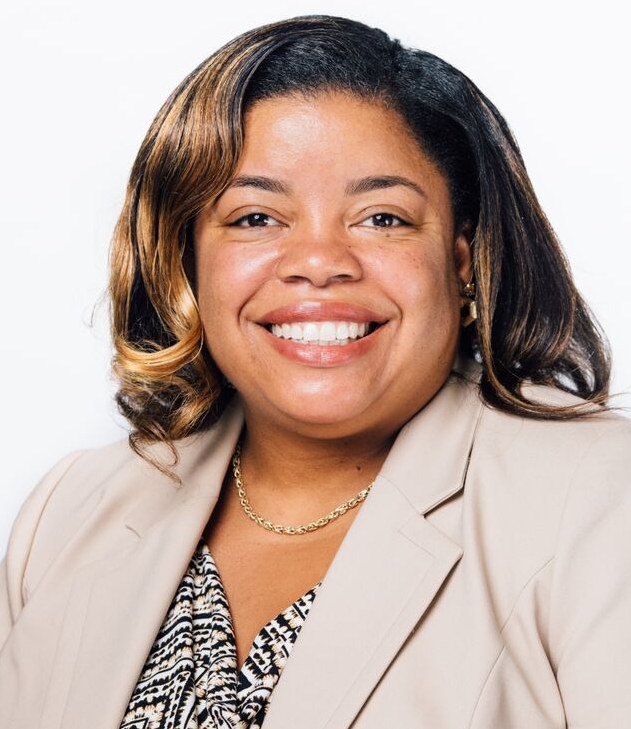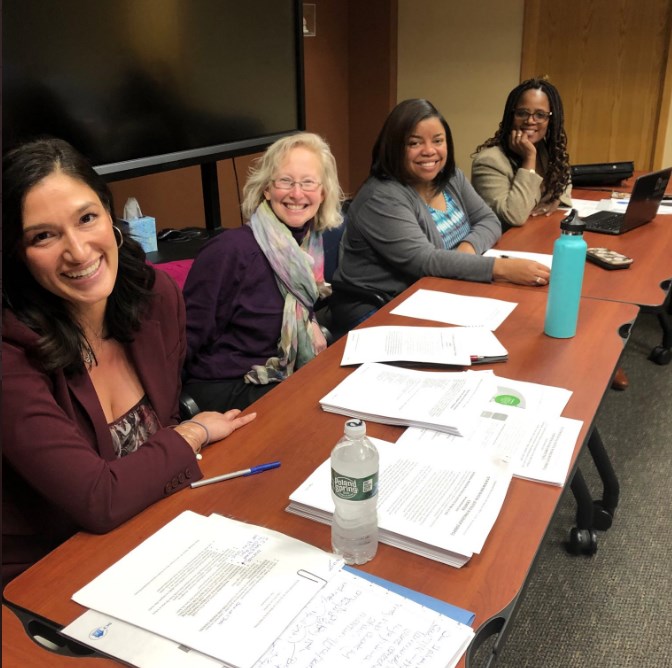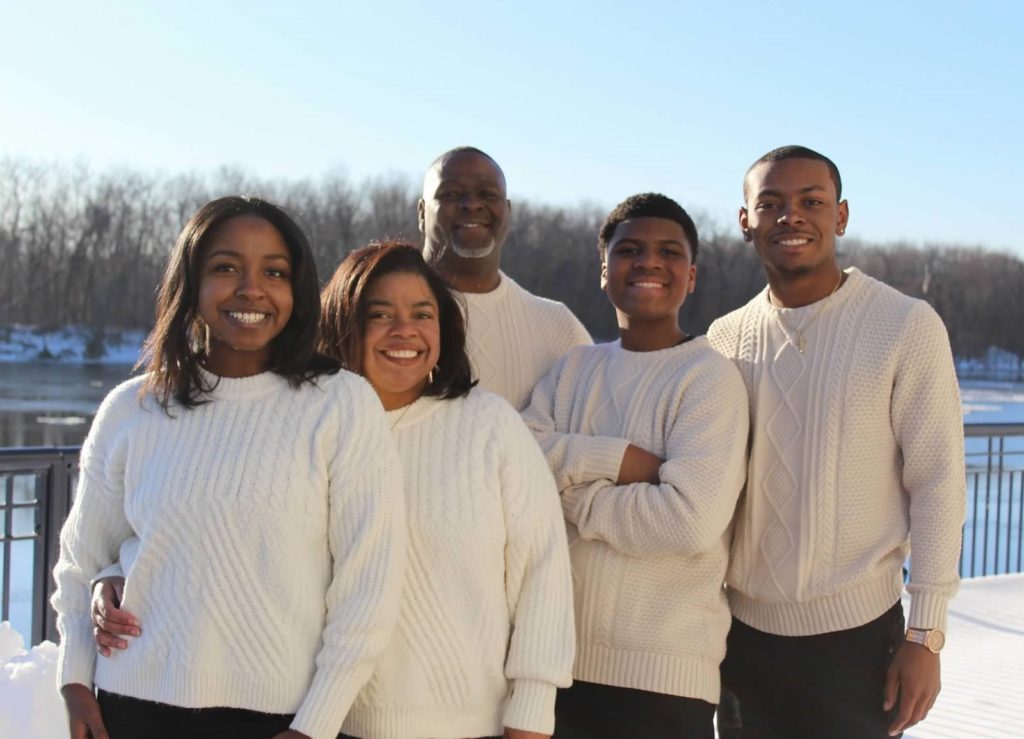Blog
Celebrating Women’s HERstory Month: Tina Jefferson

As an agency founded and led by a Black woman, ASCI values the impactful contributions made by women of color who continue to lead with conviction and strength in order to best serve children and families. In honor of National Social Work Month and Women’s History Month, ASCI spoke with five influential female leaders in child welfare to highlight their powerful stories, impacts on children and families, and visions for the future.

Tina L. Jefferson, LMSW Bureau Chief of Child Welfare for the Connecticut Department of Children and Families
With a personal connection to kinship care, Connecticut Department of Children and Families Bureau Chief Tina Jefferson has dedicated her life to serving children and families, both as an advocate for kinship care and as a parent. Her years of experience in the field has led Chief Jefferson to find the greatest fulfilment as a leader with the ability to teach her team and those new to the field to remember to see the humanity of every person they serve.
ASCI: How long have you worked in child welfare, and what made you choose this field of work?
Tina Jefferson: I started at the Department of Children and Families in 1995, but I went to undergrad and graduated in ’92 [with a degree in] Human Development and Family Relations. So, I did not immediately go straight into child welfare. First, I started off as a family advocate for a Head Start program through a community action agency, and then I spent a little bit of time in our State Department of Health and Human Services working with TBHIV co-infected clients in conjunction with the area health departments.
I actually had a college friend who was working in child welfare, and she was telling me about all of the exciting things that they were doing at the department, and how many different opportunities there were as social workers in the field of child welfare—like specialties in adolescent services, as well as investigations and permanency—and that is what really drew me to the field. That, and just really wanting to see social work from a different perspective, because in undergrad, I had spent some time working in the domestic violence arena, but the idea that I can actually help children was really what drew me to the field. That was even before I became a parent.
ASCI: Can you speak about your very first job in child welfare? What lessons did you learn that you still find relevant today?
TJ: I initially started as a social worker. I transferred right over from social work at the health department to a social worker in child welfare. And I had the fortunate ability over the last 26 years or so in the field to have various positions in the department: from social work, direct social work, to being a child welfare trainer, being a supervisor, a program supervisor, an office director, a regional administrator, and now a bureau chief. So, when I think about this field and I think about any policy or practice change or initiative, I think about it from the perspective of being that line social worker and how it felt to engage with children and families directly.
“When I think about this field and I think about any policy or practice change or initiative, I think about it from the perspective of being that line social worker and how it felt to engage with children and families directly.”
Tina Jefferson
One of the first cases I actually had in child welfare was a young mom with three children, and the goal was already termination of parental rights when I met her. The lesson I learned with that very first situation was that you cannot put—while I know permanency is important, I know that a child’s sense of time is important—but you cannot put those goals ahead of people. Being a young, new social worker meeting this mom for the first time, my heart went out to her and I saw the struggle she was having in life from employment, housing, trying to get herself together, trying to figure things out, and I really did not like the fact that I had automatically been given a goal that almost no matter what she did, she was going to lose her children. So, I had the opportunity over the years to go into permanency. At one point I chaired a permanency team, and I always looked at it from the perspective that there is no given, right? You could shift gears, you could look back, you could reconsider reunification at any point…you have to really be willing to reassess and not be so stuck on, this is absolutely what we are going to do, because people deserve a second chance, no pun intended.

ASCI: What have you found to be most fulfilling about working in the field of social work and child welfare?
TJ: There are so many things that I could choose from, but to be honest, I think one of the reasons that I moved from micro direct service to macro where I aspire to supervise other people, is that one of the times that I felt I had the greatest influence or impact was when I was able to train other staff or supervise other staff, and I remind them that these are families and maybe we are meeting them at a point of crisis, there is a bad circumstance in their life. Usually, the situation that led them to our door is a multi-generational issue and to treat them with the same respect that we would want to be treated with, that we would want our aunties to be treated with, our grandparents to be treated with and when you see sort of the light bulb go off in the staff’s eyes, for me, that is what really made me feel good and like I was having an influence in the field.
Sometimes for me, social work can be very basic at its core. It is a helping profession. You want to help people. You want to leave people better off. I think sometimes you find young, eager social workers coming straight out of college into the field and they are trying to learn all the policies, all the procedures, all the protocols, and sometimes you could just lose sight of the fact that these are just people. So, [I encourage them to think], “How do you want to help people?” as opposed to simply remembering and being able to recite policy and protocol.
ASCI: What are some things you think need to be changed about the system?
TJ: Starting to shift it to foster care is one of the things that I felt for a long time that needed to be changed. It’s the mentality in child welfare that we need to save children from their families. [But] we need to lift families up. We need to support families. We need to protect children. We need to ensure that children are safe and well cared for, but we do not need to save them, because I think that savior mentality is what has taken children out of their communities, it is taking children away from their families. It has taken them away from a sense of belonging and it has left a lot of young adults aging out of our system with no connections. No connections to who they are, no connections to their family, and no connection to non-paid people. So, I think it is a horrible thing when you have an adolescent specialist, if you will, that is the only person showing up for a child when they graduate from school or when they have a significant event in their life. We need to find ways to safely keep them connected to people that are going to be there beyond us.
“We need to lift families up. We need to support families. We need to protect children. We need to ensure that children are safe and well cared for, but we do not need to save them because I think that savior mentality is what has taken children out of their communities, it is taking children away from their families.“
Tina Jefferson
ASCI: How do you believe your own work advances those values?
TJ: I have been really fortunate to have a lot of great, visionary leaders that have helped me to be able to bring my own values into this work, and one of them is around kinship. When I first started, kinship placement was unheard of. It was “the apple does not fall far from the tree” mentality, and so to be able to proudly say that just about half of our kids currently in Connecticut are placed with kin or someone that they know, to be able to see the advancements with fictive kin and permanent transfer of guardianship so that you do not always have to go to TPR [termination of parental rights] and adoption. Right now, we have a new model we just adopted in Connecticut called the Quality Parenting Initiative (QPI) where we are making sure that our core caregivers understand the importance of maintaining connections to the bio family, because when all the adults in your life work together on your behalf, keeping the child at the center, that is when children thrive.
We know that is when children thrive, but for whatever reason, we set up a system for so many years where you almost let the foster parent in the front door and the bio parent in the back door, and you encourage sort of that separation between adults to safeguard the core family from having to engage with this horrible bio family. And the reality is, when you tell children that their bio family is horrible and sort of not redeemable in any way, you are telling them that about themselves, because they are a connection of their families and of who they come from. So, we are doing better in Connecticut, and I am really proud to be a part of that.
ASCI: Can you explain your own experiences with kinship care?
TJ: I am raising my son, who was my great-nephew. He is 12 now. Twelve years ago, he came into my life through kinship placement. It has changed me, and it has changed me for the better and my outlook on family. It has changed my outlook on a lot of things, so I would really be remiss to have a conversation about kinship care just from the perspective of who I am as a bureau chief and not talk about who I am as a mom. I wanted to share that because I have three children, one of which did come through the child welfare system and is now my youngest child.

ASCI: What do you feel have been your biggest accomplishments in the field? And, what initiatives are you working on that can benefit children and families, aside from what you have mentioned already?
TJ: The Kinship Navigator program we are working on so that we can try to support kin and families to get access to services and resources that they need without coming through our system. I think we are doing a lot through Family First and with prevention to really think about, how do we build a stronger child welfare system that encompasses the community providers, grassroots organizations so that families can get the help they need naturally? That is a lot of the work underway in Connecticut, to make sure that people do not always have to access a child welfare system unless there are issues of abuse or neglect. But, if Grandma just needs to raise her grandchild and needs some support in doing so, how do we accomplish that in a way that honors that family unit?
“We do have value and insight and information and things that we can bring to the table, no matter if you have been in the field for two months or 26 years.“
Tina Jefferson
ASCI: What advice would you give other young women working in child welfare or considering it?
TJ: Do not doubt yourself or your core beliefs about family, because I think sometimes, especially an African-American woman, you come into this field and quickly feel like you have to sort of adapt or change to the system, if you will, as opposed to recognizing that we are the system and we do have a voice; use it. We do have value and insight and information and things that we can bring to the table, no matter if you have been in the field for two months or 26 years. Use your voice, stand up for people that do not have a voice, and trust yourself, because again, I walked into a child welfare system 26 years ago—that, thank God, is very different from the system that we have now—where you heard things that were discriminatory, you heard things that just did not sit right in your core, but out of fear of your job or your age or your lack of experience as a parent yourself, you oftentimes feel like, “Well, I do not know if I should speak up or if I can speak up.” So, I would encourage young people coming into the field to speak up.
ASCI: What are you looking forward to in your career moving forward?
TJ: I honestly do not know. That is a truly honest answer. I mean, I think I have been so fortunate in my career in this field. I have achieved and accomplished things that I never thought possible. I think as long as I continue to have a voice and some influence over the field, regardless of what the title might be, just the opportunity to continue to give back and support families and communities and children, I will be happy. Not quite sure what that will look like, but I want to stay the course. I think we are headed in the right direction with prevention, with kinship care, with shrinking our front door in the need for government and where possible, definitely keeping safety at the forefront. But I think we are headed in the right direction.
Congratulations Tina!!! You were spot on with your interview answers. I can relate to your comment about encouraging social workers use their voices; which is very important to families who are involved in the child welfare system. Continue with the great work you are doing for the department. Thanks for all of your hard work.. Again congratulations 🎈!!